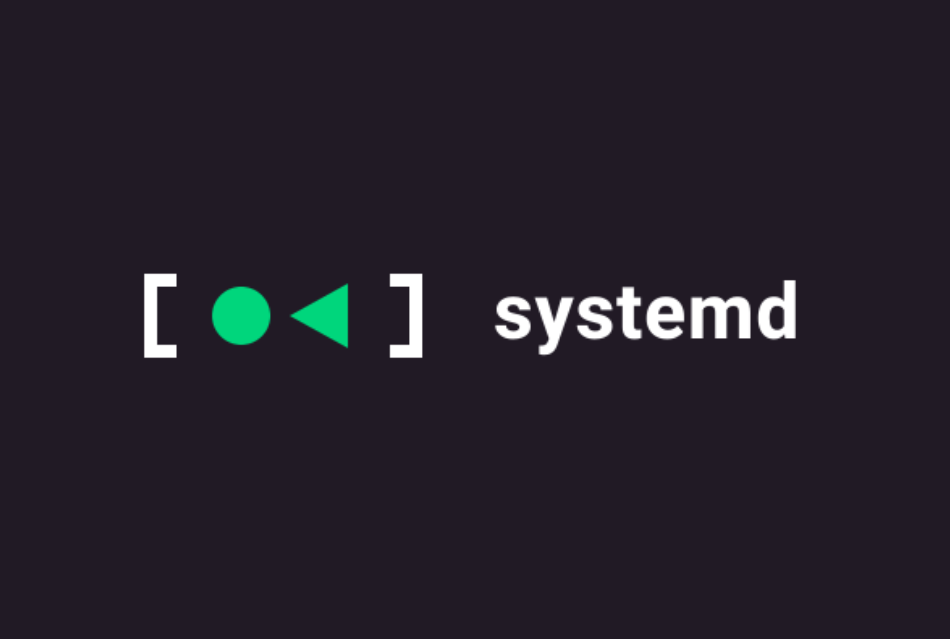- cross-posted to:
- [email protected]
- cross-posted to:
- [email protected]
Soon we will have to call it GNU/systemd/Linux
Nah. Replacing the kernel is probably planned for the next point release - it’ll just be GNU/systemd
Can we rename it GNUtriSystemD?
Systemd makes life easy. It also makes Linux more teachable. I like accessibility and don’t even mind this
I’m not on the systemd hate train by any means, but I don’t understand how this is any improvement over
pkexecI’m unclear from the documentation, does pkexec work under non-GUI contexts?
As long as you have polkit setup to work in terminal sessions, yes. This is pretty standard these days, though not particularly widely used.
I don’t understand how this is any improvement over pkexec
That has the same problem as
sudo: the SUID bit is set for it.The fact that
run0uses polkit is more of a byproduct that this kinda authentication is already done with polkit all over the place in systemd. You can have individual subcommand accessible to different users (for example everyone cansystemctl status, butsystemctl rebootneeds to be in thewheelgroup) which is why its generally used within systemd already. And it wouldn’t surprise me if again you can do it with this as well, limiting what commands can unconditionally run, need prompt or are completely blocked.
hard disagree. life with plain text logs and daemon init scripts was so easy and nice. But we can’t have nice things…
You know what’s nice? Being able to sit down at any Linux distro and being able to set up and configure services without Googling how to use that particular distro’s init system.
Those hacked together system-specific bash scripts were shit. Having a standard way of creating, starting, ensuring restarts,and logging services is so much better.
You can still get all the plain text logs you like.
Those hacked together system-specific bash scripts were shit.
With a different feature set per script as well. The systemd service files have often been pushed upstream.
Pretty sure people liking those scripts never really tried dealing with them across distributions. Though this just rehashes things that were said when distributions decided if to switch to systemd. Still the same strange claim that those scripts are somehow easier. It wasn’t, it is also way easier to package a systemd file from upstream than to maintain that stuff within a distribution.
How do you get plain-text logs instead of the garbage binary format that
journalctlforces on you?Set ForwardToSyslog=yes in journald.conf and install a syslog daemon. Also optionally Storage=volatile (I wouldn’t set Storage=none unless you want systemd to no longer show you any logs anywhere including in systemctl status because I assume it will do that)
Definitely reads like a Microsoft answer, seems so much easier than just reading text
Thank you!
By configuring journald to forward messages to syslog as is the default.
“forces on you” 🙄
Edit: Systemd has been around for 14 years. Did you never think to google this?
It’s not the default fwiw. From journald.conf(5):
By default, only forwarding to wall is enabled.
But it’s so unbearably slow.
Me when my computer that has a typical uptime of 37 days boots up in 7 seconds with systemd instead of 5.5 seconds with runit: 😡😡😡😡
Lmao yeah exactly
Or as I’ve taken to calling it, GNU+systemd+Linux.
I mean it should kind of already be something like GNU/SystemD/X11/PipeWire/Linux, I guess.
It’s not like the GNU utils are the only massive integral part of the OS. I think GNU/Linux caught on squarely because many people follow Stallman, and that’s how he wants people to refer to it.
It definitely made way more sense at early on. I mean GNU made most of UX of using Linux at some point. Systemd, and the browser now make a much bigger portion than before, and the world is more than GNOME now too.
deleted by creator
Agreed, this is a nice inclusion. I also hate sudoers with a passion - I already use
doasbut it’s not standard (in the Linux world anyway), but with systemd providing an alternative means that it’ll become a standard which most distros would adopt, and I hope this means we can finally ditch the convoluted sudoers file once and for all.deleted by creator
The thing with this is: its just a symlink to the
systemd-runbinary, which talks to PID1 to spawn new processes (in separate cgroups IIRC). Its one of the most fundamental parts of systemd. Even the debiansystemdpackage includessystemd-run.I guess the other question is if some tools the distro provides might switch to supporting it by default. For example on Arch there is
makepkgthat should never be executed as root, but does internally call some things with elevated privileges (mostlypacmanto install and remove packages). Currently it checks forsudoand if not falls back tosu, but maybe it might be worth considering changingsuforrun0if its guaranteed to be there.deleted by creator
it does its authorization with polkit (which IIRC defaults to allow all
wheelgroup members) and giving users that shouldn’t be allowed root access, root access, is not something you ever want. This is usually referred to as unauthorized privilege escalation. Also, it isn’t likesudodoesn’t need configuration.
How does doas differ from sudo?
Never heard of the former until now.
doasis quite popular in the BSD world, and was ported to Linux a few years ago (via the OpenDoas project).For starters, it’s is a lot smaller than sudo - under 2k lines of code vs sudo’s 132k - this makes it lot more easier to audit and maintain, and technically less likely to have vulnerabilities.
Another security advantage is that
doasdoesn’t pass on the environment variables by default (you’d have to explicitly declare the ones you want to pass, which you can do so in the config).The config is also a lot simpler, and doesn’t force you to use
visudo- which never made sense to me,visudoshould’ve just generated the actual config, instead of checking it after the fact. Kinda like howgrubbyorgrub2-mkconfigworks. But no need for that complexity with doas.Eg, the most basic
doasconfig could just have one line in the file:permit: wheel. Maybe have another line for programs you want to run without a password, likepermit nopass dexter cmd pacman.Awesome. Thanks for the insight.
Essentially functionally stripped sudo, smaller in size than sudo. See also Pottering’s thoughts about the ecosystem
Nice to see that Mastodon has the same problem as Twitter with people trying to use it for long-form blog posts for some godforsaken reason.
Blame the Mastodon team, if you’re not running a fork, you have to go into the source and adjust the character limit manually.
Nobody has to do it like this, Mastodon supports longer posts since other servers and clients support more, it’s seemingly just a choice from upstream.
Makes sense considering people who moved from one micro-blogging service to another instead of giving up on the idea completely are probably the ones deeply committed to that flawed idea.
I admit, I’m not a big fan of putting more functionality into systemd (or just of systemd in general), but that is a well-reasoned argument for having sudo live in the init system.
I read the original mastodon post by the developer of run0 and I am still don’t understand what the problem with SUID is.
Whats an example of an attack that would work with sudo and doas (which also uses SUID) and not on run0?
deleted by creator
Thanks for taking the time to explain. I was trying to get my head around on how this works but could not understand much of it. A lot of people here are very much against systemd in all senses, but this sounds like a better approach. Even if it not done as systemd, makes more sense than checking files and getting elevated privileges for a scope and use guardrails everywhere
Oh, it’s gonna use polkit. Sudo bloat is a grain of sand compared to polkit.
Why people want to replace sudo with polkit? Visudo is no near as obscure as configuring polkit.
I hope distro maintainers don’t follow this.
First thing I do with any new desktop installation is disable polkit prompts.
Fuck having to enter my password every time I want to do something.
Hey uh can I get your IP address real quick? I have a strong suspicion your philosophy extends to your network ports.
You’d be wrong about that.
Edit: he just downvotes me instead of admitting he’s wrong about his assumption, lol.
They can’t help themselves. They gorge themselves on his phallic offerings.
I just treat polkit as “set it and forget” kind of thing and leave it on defaults, I’d rather spend my time on something more important
…is
pkexecnot good enough already as a polkit based sudo replacement? Why would one need to systemd-ify that?
new sudo vulnerabilities? how exciting!
E: read the article, I guess that is part of the reason for the proposal. interesting
Even when that releases, it doesn’t mean distros will switch to it. Just because it’s systemd, doesn’t always mean it’s better. Just look at network manager vs systemd-networkd. Correct me if I’m wrong but afaik they are made to serve the same purpose and most distros prefer Network Manager over systemd-networkd.
Honestly, though, NM is useless on a server or VM. I don’t know why they still have that kludge installed on 90% of machines.
Having said that. Lennart’s Cancer is junk from junk process. It WILL be adopted by every distro but PCLinuxOS because no other distro is putting effort towards stability and reliability.
I’d hoped that moving to Microsoft would allow IBM to re-evaluate the shit shoveled into its declining enterprise product, but that’s not looking likely given staffing and IBM’s ancillary priorities. RHEL only needs to be Good Enough so it can sell certs and classes and AAP and other make-work.
If RHEL is as shit as you say, what do you recommend companies switch to?
I honestly started out not liking systemd at all, mostly due to the reports that it did waaay to much, but nowadays, I like the concept.
It is basically officially moving daemon management from a script-based approach to a table/database-based approach. That improves static analyzability, therefore increasing clarity, and probably even performance.
I agree that we should abandon scripts and move towards declarative software management, and abandoning
sudofor a more declarative system seems like a good step to me.The meme is becoming a reality. Systemd really is going to try to be everything lmao
AlwaysHasBeen.jpg
Systemdeez nuts
Gentleman and scholar
How does
systemd-run/run0handle what/etc/sudoerscurrently does?I’m disappointed in how little technical discussion there is in this thread.
sudo is overkill for most users tbh
Yeah I think I’m the exception but I just use
suat homeso is systemd
Actually no. The thing is just that systemd handles so many things that makes the lives both developers/distro maintainers and users easier, but most of it happens in the background. You can forget about having to learning complexer tools, just do it all via systemd
Idk
Systemd has always been about “don’t ask questions or well call you obstructionist and old”.
Looking at the implementation, it doesn’t really implement sudoers or tools like sudoedit in any way.
systemd-runhas already been an existing tool for quite some time and this is really just a different CLI for it. That tool asks systemd to make a temporary new service and immediately run it. That, in turn, requires blanket yes/no approval fororg.freedesktop.systemd1.manage-unitsvia polkit.So with run0, you can either do everything or you can do nothing. In-betweens are just not a thing at the moment. There’s very little new backend code running as root.
run0 bashshould behave very similar to something likesystemd-run --uid=0 --gid=0 --wait --same-dir --send-sighup --pty --pipe --collect bashand the majority of those options have been available for quite a while.
No.
But for why (I’m commenting this before reading) wouldn’t it make more sense to home I’m the scope of systemd so it can be easier to maintain? Why have it do everything?
Why have it do everything?
Isn’t the guy behind systemd a (former?) Microsoft employee? I feel as though that might offer a clue as to why the trajectory towards bloat.
He’s working for Microsoft now but it’s very recent, he developed systemd while working at RedHat.
I don’t even know of he’s still working on it. There are a lot of things to be said about systemd and Lennart but the link to Microsoft is irrelevant.
It is. He is poisoning Linux, slowly, from the inside. Like the XZ attack, just smarter and much slower.
Why do you consider it as poisoning? I’ve heard the argument about not doing things the traditional Linux way (binary logs for example). But if the alternative provides so many benefits, why is it an issue? Systemd is a piece of cake for all parties compared to sysvinit and alternatives, so why is it bad when it solves so many issued, and makes it super easy to use by just adding e.g. a new option to a Unit?
Another example: timers are more complex than cronjobs, but timers offer additional needed features like dependencies, persistence, easy and understandable syntax, and more. So although more complex, once you get the hang of them, they’re a very welcomed feature imo
By itself, solely doing init, it would have been fine, however, binary logging (even if you eventually end up with a text log, that’s wasting disk space on a binary format no one wants or needs), and it didn’t stop there. He keeps replacing Linux subsystem after subsystem, and many of those replacements are not progress, just duplication of effort and creates more ways for configuration drift.
Here is the rationale for the Journal. In short it is really not that simple and it has a lot of advantages over simple text files and it saves disk space.
Having the logs twice is saving space, got it. Do you hear yourself?
You can still forward to text syslog or to a central logging server like Loki if working with multiple hosts. I still don’t get the issue with binary logs.
Yes, and many distros have that out of the box… But they don’t have it sent to keep the binary journal as close to empty as possible. So you end up with twice the space in use for logs. As for the issue with binary logs, text logs can be read by far more tools and utilities, rather than just journalctl and pipes.
You can set the space limit for journals logs really low then, to avoid double space usage. As for the last argument, that also was an issue for me years ago because not all tools were compatible with the journald format, but that’s since long fixed now and I’ve not experienced any issue for a long time. Journal logs provide a standard format for all applications, so third party tools don’t need to be compatible with every log format of your applications. And it also comes with great additional features like -b or --since etc. So I still don’t get the issue here
The guy who discovered the xz attack was also a Microsoft employee, for what it’s worth.
Maybe they discovered xz attack because they are familiar with these things.
systemd is more of a set of products and software components branded under a single name rather than a single thing.
systemd itself is rather simple, as most other pieces systemd-* software, like systemd-boot, systemd-networkd and systemd-resolvd. these are usually more stable and less bloated than more popular alternativesAs long as they can work independently, yes. If they are modular and a distro admin (or just a computer admin) can choose to install and use systemd-x but not install or use systemd-y, we are in good business
Now if you have to take a few you don’t like or need to use so that the one component you do want works, then no
I honestly don’t know enough of systemd to say either way
Most of systemd stuff is decoupled well. You don’t need to use networkd to make use of resolved for example.
Good to know, thanks for the answer
Oh okay I didn’t know that thanks
I can understand that it makes it easier to add changes that would benefit systemd and distros in general. I read that they introduced run0 to solve long shortcomings of sudo (I’m not aware of which). That sounds logical.
You can’t think of it a single massive project. It’s actually lots of small components.
We could argue the linux kernel is bloated too. The reality is though, provided the project is designed to be modular (as SystemD is), it actually makes sense to keep it together, to ensure there is a standard base and all the components are synchronised fully with their API’s.
It also saves distro’s a lot of effort.
In practice, all those tight coupling between components mean that it behaves more or less monolithic, despite the claims to the contrary. Replacing them with alternatives is a pain because something else breaks or some software has a hard dependency on it.
distro’s
You can pluralize without the apostrophe. In fact, you never need an apostrophe to pluralize.
It also saves distro’s a lot of effort.
Only if they want to break free.
And they don’t need nfsroot or a separate consolidated /usr mount or, really, a whole host of things that lennart didnt understand and unilaterally broke like an arrogant noob.
But that’s blasphemy.
Oooh okay that makes more sense. Thanks I didn’t know that
deleted by creator
Well… Poettering will eventually work his way up to browser engines and then we’ll get something efficient… Here’s the announcement:
"There’s a new component in systemd, called “engined”. Or actually, it’s not a new component, it’s actually the long existing “WebKit” engine now done properly. The engine is also a lot more fun to use than “WebKit” or “Blink” because you can finally have hundreds of tabs open in your browser without running out of RAM.
Coming soon in Coming for systemd 981.
Glad to see PoetteringOS has still not infected the *BSD family members /s And I’ll gladly use Doas on Linux if need be, thank you.
What version of doas though? Opendoas is hardly maintained.























